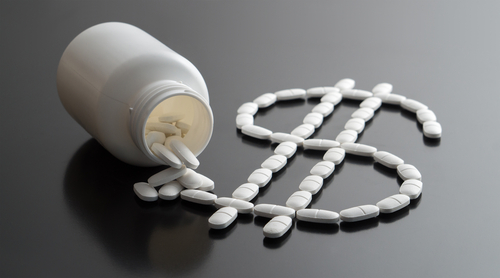If you don’t have rheumatoid arthritis, psoriasis, Crohn’s disease or some other nasty autoimmune or inflammatory illness, probably the fact that Humira is losing its patent won’t excite you very much – but if you’ve ever complained about how much your medicines cost, it should.

What is exciting is that, finally, it is possible for the 9 cheaper generic, biosimilar alternatives to Humira to hit the market. But none too soon thanks to typical drug company fandangles pulled by manufacturer AbbVie - a typical example of the immoral stuff drug companies do to keep the price of their medicines as high as possible.
How it Works
Drug manufacturers are given a 20 year patent on new products, in which time the FDA will not license any generic version of the medicines. The idea is the exclusivity allows them to recoup the costs incurred when they develop a new medicine.
Humira (generic name adalimumab) is a biological that suppresses the inappropriate immune activity thereby reducing the inflammation, joint pain, rash, diarrhea, fatigue or other painful and debilitating symptoms that people with these autoimmune/inflammatory diseases suffer from.
It has been on the market for many years, but like virtually all medicines these days, it has a patent – that was due to expire in 2016.
What AbbVie’s lawyers - like so have many other drug company’s lawyers have done – is to find a way to extend the patent.
In the case of Humira, AbbVie (who incidentally didn’t develop the drug themselves, but bought it from Knoll pharmaceuticals) came up with a new indication for it – for treating ankylosing spondylitis with a specific dosage.
Typical of these fandangles is that there is no real change to the medicine. Just some change in the indication, delivery system, packaging, duration of action etc. For AbbVie, this resulted in an 11 year extension on the patent reports the New York Times.
Other examples of this kind of questionably ethical marketing is Eli Lilly, when the patent was about to run out on Prozac, reformulated it in a long acting, weekly form - and got a patent renewal.
GlaxoSmithKline’s migraine medicine Imitrex, had its patent extended by changing the rout of administration to a nasal spray. Bristol-Myers Squibb got an extension on their diabetes drug Glucophage by making it Glucophage XR, an extended-release version – but of the exact same medicine, metformin.
Obscene Profitability
Drug companies are very adept at finding fandangles to extend patents. But, as I have learned, they have found many other ways to enhance their market.
For example, they work their way in to medical schools to influence students, with grants. Pay stipends to experts to subtly promote their products. They sponsor and influence the content of continuing medical education programs. They run, and can influence, the clinical trials that test their products. They have massive sales forces of reps who go and twist the arms of doctors often wining and dining them. There is, some people claim, an unhealthy exchange of personnel between drug companies and the FDA.
All possible because they have lots of money – and therefore lots of political clout. So they have also been influential in getting the US to be only one of two countries in the world to allow direct to consumer advertising of drugs on TV. And oppose any restraints on drug prices like those found in other countries.
This all makes drug companies very profitable. They have the highest profit margins, and returns of any industry group, according to a report in JAMA Network – with a net income margin of 13.8 percent versus 7.7 percent for the average S&P 500 traded companies.
Humira is the kind of product any drug company would envy – reported by NPR as “the worlds best selling drug for many years.” With a previous price tag of $50,000 a year, the New York Times reports “since 2016 the drugs list price has gone up 60 percent to over $80,000. It has earned $114 billion in the US, for AbbVie just since the end of 2016, and $208 billion globally.
Then AbbVie itself is reported to have an annual revenue of nearly $60 billion and is in the top 10 most profitable drug companies – though the company has lost some value since anticipation of the expiration of Humira’s patent.
The Morality
I tell you all these dizzying statistics to make the point that, while people needing this medicine in the US are going broke trying to afford it, the pharmaceutical industry is reaping large profits.
It is of course the job of any company to make money, but todays mantra seems to be “profits at any price.” No hint of being willing to be forgo some profitability because people are going broke trying to pay for it, or are suffering, or dying if they can’t afford it.
As in so many walks in the US., making money seems to be the only thing that matters.

